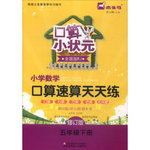题目内容
完形填空
You may think that English dictionaries have been used for many, many centuries. In fact, an English dictionary you 1 today wasn't made until the Oing Dynasty. Three men did most of the important 2 work on dictionaries. They spent nearly all their lives trying to 3 words for their dictionaries. For them, it was a wonderful journey. The largest dictionary in the word, is Oxford English dictionary. The 4 for this dictionary carne from an important meeting in Britain in 1857. Twenty-two years later. Oxford University asked James Murray to be the editor of its new dictionary.
Murray had never been to 5 . At the age of fourteen, he left his village school in Scotland and taught himself while working in a bank. 6 he became a great teacher. After Oxford gave him the job, Murray had a small house 7 in his garden to do the work. Every morning Murray got out of bed at five o'clock and 8 in the small house several hours before breakfast. Often he would work into the night. Murray hoped to finish the new dictionary in ten years.
But after five years, he was 9 adding words for the letter “A”! He worked on the dictionary 10 he was very old. Forty-four years later, in 1928, other editors finished the dictionary.
解析:
|
(1) 解析:you use today是否定从句,用来修饰dictionary,意思为“你使用的字典”。 (2) 解析:early work早期工作。 (3) 解析:意思是为字典收集单词。 (4) 解析:编辑字典的想法。 (5) 解析:been to school意思为上过学。 (6) 解析:后来。 (7) 解析:have sth done请/用/雇人去做。 (8) 解析:并列句,表示工作。 (9) 解析:5年后,他“仍然”在编辑字母“A”。 (10) 解析:一直工作到老。 |

 口算小状元口算速算天天练系列答案
口算小状元口算速算天天练系列答案完形填空
Plants are very important 1 things. Life could not go 2 if there were no plants. This is because plants can make food from air, water and sunlight. But animals and man cannot 3 so. Animals get their food by eating plants and 4 animals. Man gets its food by eating plants and animals too. 5 animals and man 6 plants in order to 7 . This is why we find that there are so many plants around us.
If you look 8 at the plants around you, you will find that there are many types of plants. Some plants are large, 9 others are small. 10 plants are green. There are two sorts(种类)of plants: flowering plants and non-flowering(不开花的)plants.
Flowering plants have roots(根),stems(茎),leaves, flowers and fruits(果子). 11 all the trees around us are flowering plants. Flowering plants 12 make seeds(种子). The sends 13 by the fruits. Some fruits have one seed, some have two, three or four, and some have many seeds. But a few fruits have no seeds 14 . 15 example of a fruit 16 seeds is banana fruit.
Most non-flowering plants do not grow from seeds. They grow from spores(孢子). Spores are small. Some spores are 17 small and 18 that they can float(漂浮) 19 the air. We may say that spores are quite different from seeds. When these spores 20 on wet and shady(阴凉的)places, they usually grow into plants.
1. A.live |
B.lively |
C.living |
D.lived |
[ ] |
2. A.through |
B.over |
C.down |
D.on |
[ ] |
3. A.hope |
B.do |
C.think |
D.make |
[ ] |
4. A.another |
B.the other |
C.other |
D.others |
[ ] |
5. A.Though |
B.And |
C.But |
D.So |
[ ] |
6. A.need |
B.want |
C.find |
D.have |
[ ] |
7. A.grow |
B.live |
C.work |
D.eat |
[ ] |
8. A.careful |
B.clear |
C.carefully |
D.clearly |
[ ] |
9. A.while |
B.when |
C.since |
D.as |
[ ] |
10. A.A great deal of |
B.Lot of |
C.More |
D.Most |
[ ] |
11. A.Between |
B.Except |
C.Almost |
D.Hardly |
[ ] |
12. A.should |
B.can |
C.may |
D.must |
[ ] |
13. A.are born |
B.are hidden |
C.are stored |
D.are kept |
[ ] |
14. A.any longer |
B.any more |
C.at last |
D.at all |
[ ] |
15. A.The |
B.An |
C.A |
D.For |
[ ] |
16. A.without |
B.with |
C.full of |
D.of |
[ ] |
17. A.too |
B.very |
C.so |
D.much |
[ ] |
18. A light |
B.active |
C.little |
D.strong |
[ ] |
19. A.on |
B.in |
C.by |
D.above |
[ ] |
20. A.put |
B.move |
C.place |
D.fall |
[ ] |